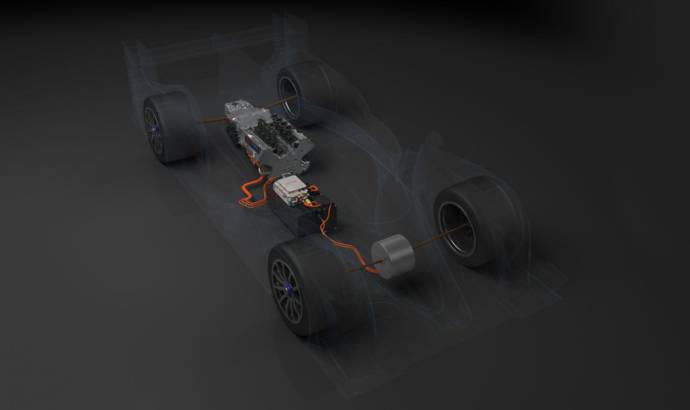TOYOTA Racing can reveal the first details of its participation in the 2014 FIA World Endurance Championship (WEC), in which it will push the limits of hybrid powertrain technology in motorsport.
TOYOTA Racing entered two cars for the WEC season, including the Le Mans 24 Hours, and the Automobile Club de l’Ouest is scheduled to confirm the full grid on 13 February.
For the third consecutive year, Alex Wurz, Nicolas Lapierre, Kazuki Nakajima, Anthony Davidson, Sébastien Buemi and Stéphane Sarrazin will drive for TOYOTA Racing. They are joined by test and reserve driver Mike Conway. The TS040 HYBRID prototype has been designed according to new regulations intended to keep the WEC and Le Mans at the forefront of road-relevant technology development.
Its first public appearance will come at the WEC official test session on 28-29 March when it will take to the track alongside prototypes from Audi and Porsche for the first time.
After the TS030 HYBRID established TOYOTA Racing as a pioneer in the field of hybrid powertrains for motorsport, its successor, the TS040 HYBRID, takes the technology to the next level.
The addition of an Aisin AW motor/generator on the front axle, in combination with the DENSO unit at the rear, means the TOYOTA HYBRID System – Racing now provides power to all four wheels.
Under deceleration, the motor/generators apply braking force in combination with traditional mechanical brakes to generate energy, which is transferred via a DENSO inverter to the Nisshinbo super-capacitor. During acceleration, the motor/generator reverses its function, acting as a motor to deliver a significant power boost.
The car completed a successful roll-out at Paul Ricard earlier this month (21-23 January), with Alex Wurz and Anthony Davidson driving. Further testing is planned prior to the season-opening Six Hours of Silverstone (20 April). More details about the TS040 HYBRID, including technical specifications, will be released immediately prior to the 28-29 official WEC test.
That four-wheel-drive hybrid power is allied to a petrol-powered V8 engine, both having been developed by Motor Sports Unit Development Division at the Higashifuji technical centre, where next generation TOYOTA road car technology is also under development.
Such a link between motorsport technology and future road cars is fundamental to TOYOTA Racing, with the TS040 HYBRID, like its predecessor, acting as a real-life test bench for TOYOTA’s latest hybrid concepts. TOYOTA has already sold 6million hybrid road cars since the launch of the Prius in 1997.
The TS040 HYBRID chassis is designed, developed, manufactured, built and operated by TOYOTA Motorsport GmbH (TMG) in Cologne. It represents a major evolution on the TS030 HYBRID thanks to advanced aerodynamics and lightweight design.
New regulations with revised dimensions have made the 2014-generation LMP1 cars narrower by 10cm while measures such as wheel tethers and a rear crash box have further increased safety.
Intensive simulation and calculation work at TMG has refined the TS040 HYBRID, utilising hardware-in-the-loop technology to test individual components based on real track data and powerful calculation computers to optimise designs.
Such cutting-edge techniques are significantly more efficient than track testing, allowing TMG engineers to continue optimising all aspects of the TS040 HYBRID chassis and lay-out for longer than rivals relying on traditional methods.
Development of the TS040 HYBRID has been completed alongside a range of external motorsport and automotive projects running concurrently at TMG, for third-party clients and Toyota Motor Corporation.



